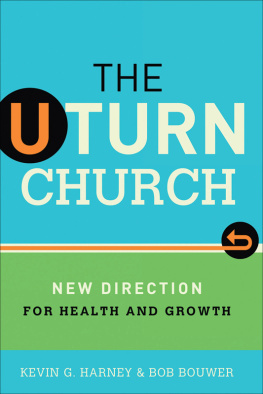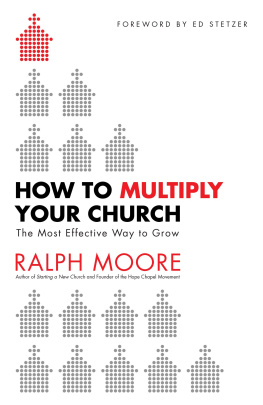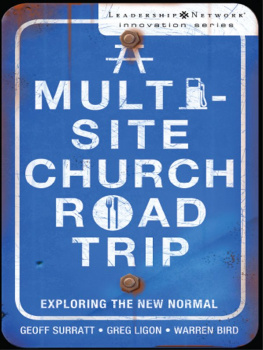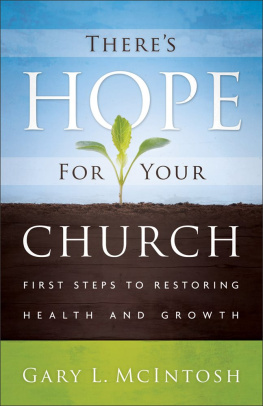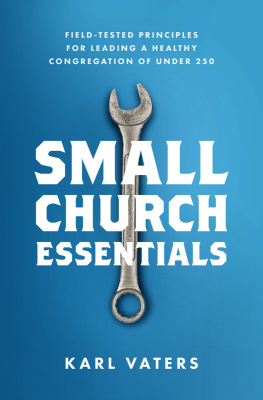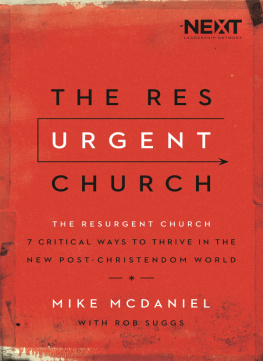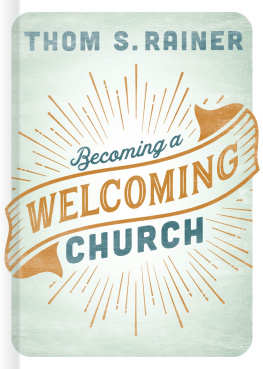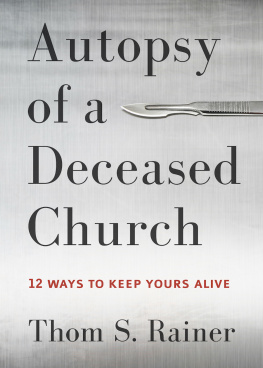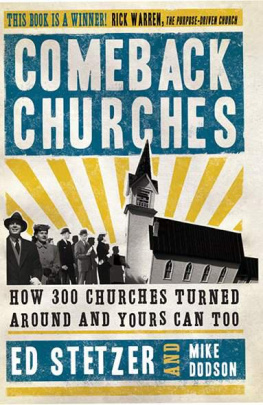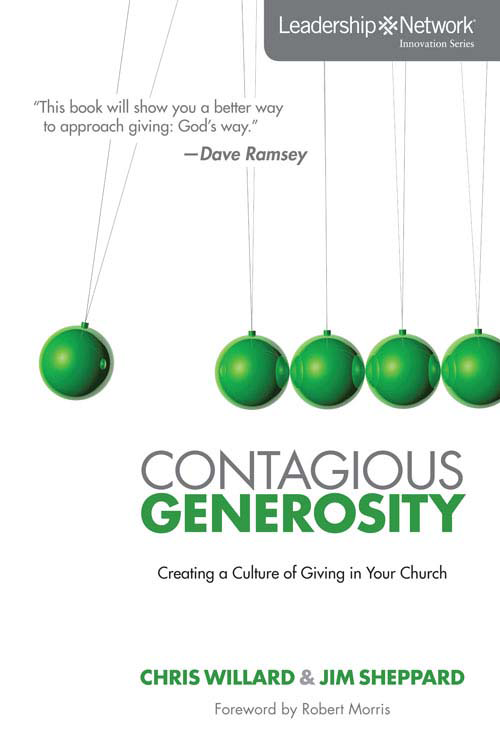
CONTAGIOUS
GENEROSITY
Creating a Culture of Giving in Your Church
CHRIS WILLARD & JIM SHEPPARD
Foreword by Robert Morris

To my mom and dad, who lived generously and modeled unconditional love for me. To my girls, Anna and Emily there was a time when we thought we would not be able to have kids, but God knew different, and he gave you to us. You are the manifestation of his generous grace in our lives. And most of all to Nancy, who said I do many years ago. You have been generous with your love for me and your forgiveness of me, and it has changed the way I live.
Jim Sheppard
To my children, CJ, Hannah, and Natalie, I am so proud of you and thankful for all you have taught me about what really matters. And, most of all, to my wife, the fabulous Susan. What would I do without you? I am so thankful for everything you have done that has helped me become the man I am today.
Chris Willard
CONTENTS
Culture represents the permission system which is unique to each church. Culture is either a headwind or a tailwind to creating a culture of generosity. Generosity should not be a silo. It should be a thread that runs through the organization and mission of the entire church.
A church must have a strategy to lead its people to become generous. It is more than just want to; it must include how to. Good strategy is both informational and transformational. Lasting change requires both dimensions.
Generosity begets generosity. People instinctively know whether a church is generous. There is a viral effect of generosity on others.
Generous churches are led by generous leaders. A generous pastor can lead a church that is not generous, but a generous church doesnt exist apart from a generous leader.
There is no function whereby the church has more influence than the regular corporate gatherings of its people. The weekend experiences are prime times to tell stories of impact, teach theology of giving, build trust, and enhance relationships.
Asking people to become generous is ministry. The focus should be on what God wants for the people, not on what the church wants from them. Asking involves listening to discern the intersection between a persons passion and what they want to accomplish with their available resources.
For pastors and church leaders who are uncomfortable around people of significant financial means, this chapter will offer insight into the nature of these givers and will help you understand their needs and desires. These people are not to be overlooked. They have the same issues and needs as the other people in the church and must be ministered to with intentionality.
You cannot manage what you dont measure. The best benchmark is the historical giving data for your church. Pastors and staff must wrestle with knowing what people give and with deciding how giving records can uncover ministry opportunities.
Its important for the pastor to point out acts of generosity in order to encourage it in others. Celebration reinforces the behavior and attitudes you want people to repeat and pass on.
Generous behavior is the best validation that Christians believe what they profess about God, faith, the Bible, and eternity. This practice of generosity is authentic and becomes magnetic to people who do not accept the Christian faith.
Generosity is systemic. It is not one thing. It is a lot of things. These ideas must be practiced in concert with one another. Its not a program or a one-time emphasis but rather a repositioning of leadership and direction to ensure that a church is developing a culture of generosity over a longer period of time.
When I wrote The Blessed Life, it was my hope that Christians everywhere would be inspired to live a life of generosity. Generosity and giving are incredibly important to me. As Ive followed Gods principles of giving, there are many times I have found myself on the giving and receiving ends of generosity. Ive experienced the blessed life that results from obeying God in this area, and I find it so important to communicate this truth to others that it has become my life message.
As Gateway Church has grown over the last twelve years, the Lord has directed us to make generosity a core value of everything we do. We know God has called us to wisely manage our finances, as a church and as individuals, so we can be the people he has called us to be. I want my congregation to be financially healthy so they can enthusiastically participate in Gods work in the kingdom.
That being said, I want to emphasize that we do not pursue generosity and stewardship as a fundraising strategy for our church. Our main goal is to raise up generous stewards. The point is to give, not to get. When you understand that everything you have comes from God, youll have no problem using your resources to build his kingdom. He will take care of the rest.
Over the years, Ive met many pastors who have asked me for help in this area. There are many churches that spend too much time focusing on making the budget work for their needs, not for the needs of the kingdom. Their hearts are in the right place, but they need practical ways to grow generosity in their hearts and in the hearts of their congregation.
I am thankful that Jim Sheppard and Chris Willard have collaborated to bring their shared observations to the church. Their advice, which is the result of countless hours with hundreds of churches, is not to be ignored. I loved the chapter Follow Me, in which they show how generosity has to start with leadership. I know that in order for Gateway to be a generous church, I first have to be a generous leader. The Lord has helped my wife, Debbie, and me to be generous leaders, a standard which is now mirrored in our church. Because of this generosity, God has done and is doing incredible things through Gateway Church.
I know the Lord wants to work the miracle of generosity in your church too. Contagious Generosity will transform your thinking on biblical stewardship. Take these principles to heart as you seek to encourage and grow the people the Lord has placed under your care.
Robert Morris, pastor, Gateway Church
INTRODUCTION
WHAT IS GENEROSITY?
You will be enriched in every way so that you can be generous on every occasion, and through us your generosity will result in thanksgiving to God.
2 Corinthians 9:11
Within the church, there is currently a significant generosity movement, but generosity is also a debated topic among Christian leaders. How we understand the role of generosity in our lives and in the Christian communities in which we do life together perhaps says more about our faith and our understanding of the gospel than any other single aspect of our faith.
Christian leaders tend to fall into one of three categories. Those in the first category have adopted generosity as the standard by which they live out their faith. It is the lens through which they interpret the will of God and their role in his kingdom on earth. Those in the second category embrace generosity as an appropriate substitute for the more established language of stewardship. For decades, the language of stewardship has been used to refer to believers responsibility to support the work of the church and to faithfully use their resources to serve its mission. Finally, those in the third category are skeptical of the notion of generosity. This group includes Christian leaders who are disillusioned by the church and its relationship with money. They see hypocrisy and sense that there is a fundamental disconnection between what the church practices and the biblical principles of stewardship that the church teaches.


